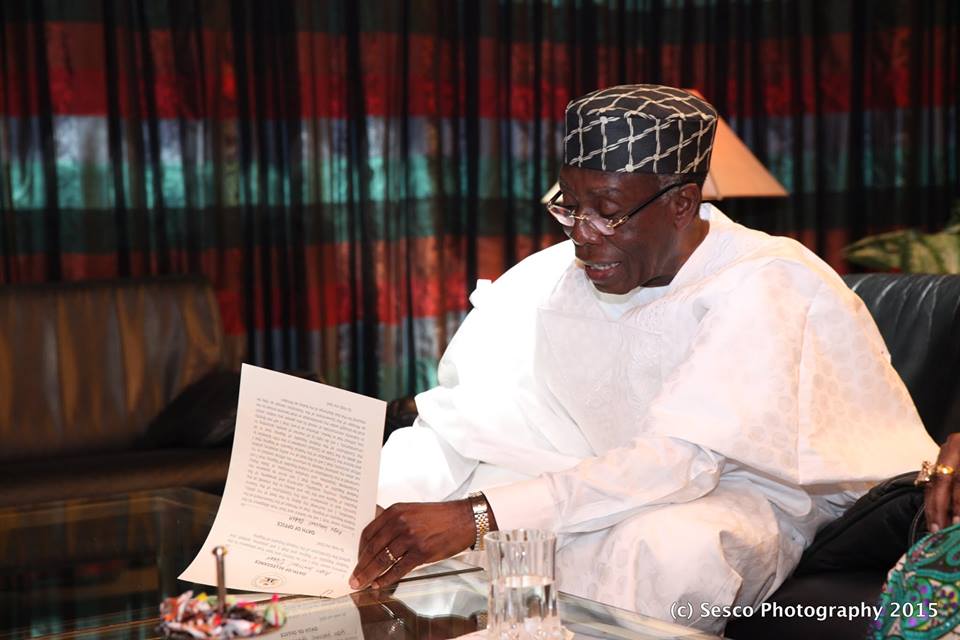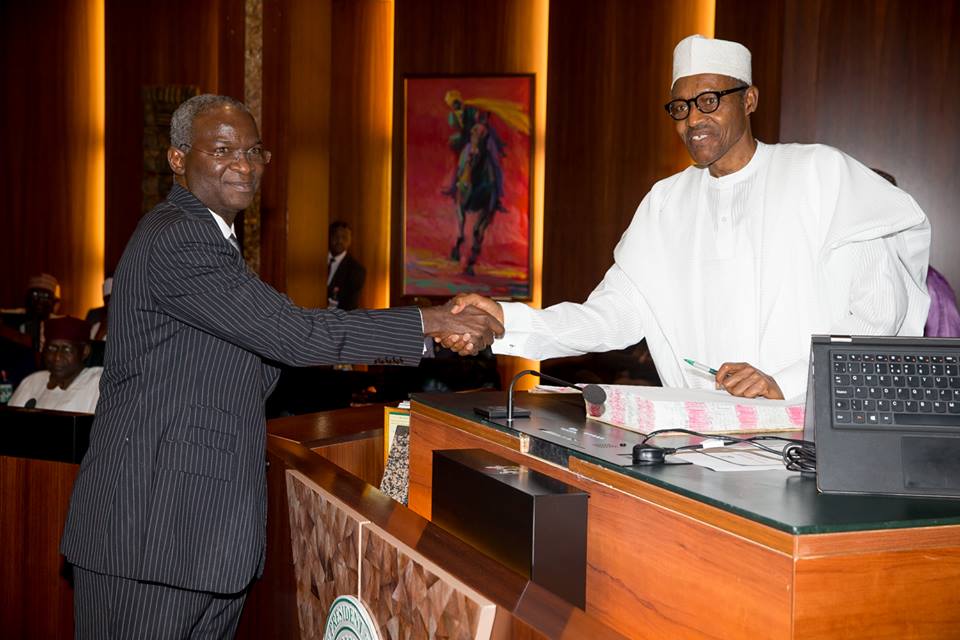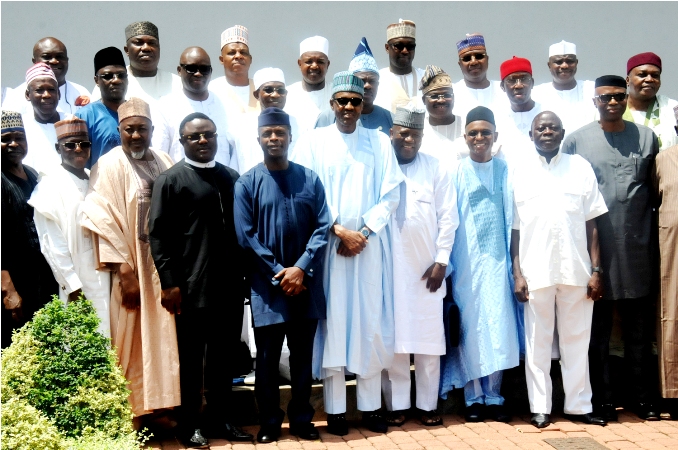Minister of Agriculture, Audu Ogbeh
President Muhammadu Buhari said for the nineteenth time on Tuesday that we could not pay N1trillion every year to import food. I understand his frustration. But that cannot pay for the price of fish. We can and will continue to pay through our nose to feed our stomach until we stop talking and start doing something.
We talk a lot about what’s to be done. And quite often, we know all the problems, real, imagined and fabricated. Where we fall short is in getting things done. It doesn’t matter whether the result is right or wrong – doing it, anyhow, is our nemesis. What Buhari said was what Jonathan said was what Yar’Adua said was what Obasanjo said. The question is, who will get it done?
On this point – that is, on the point of doing it – I’m sure we differ from many other parts of the world. From Femi Fayemi’s article entitled, “Cash and carry industrial policy,” published recently on a blog, Nigerians Talk, China offers a good example of just how we are different from other parts of the world when it comes to getting things done.
In the article, Fayemi tells the story of how China became a giant in steel production. According to statistics obtained from the World Steel Association, China accounted for 25.6 per cent of global steel production in 2004. Ten years later, it was producing 49.4 per cent or 822.7m metric tons of crude steel and is now in the number one spot.
Advertisement
What happened? A Chinese company, Jiangsu Shagang Group bought a major German steel company based in Dortmund, dismantled it metal by metal and shipped the parts over to China to study and rebuild a production line with a capacity of two million tons of high quality steel yearly.
It was a small step for Jiangsu but a huge leap for the country’s journey to becoming the world’s steel powerhouse. There was no drama, no conference or roundtable on steel, no foreign tours to attract German steel investors. Nothing. At least, not the sort of things we do to avoid doing what really matters. With a little help from a state bank, Jiangsu got the job done and is minding its business – producing steel.
But see what we have done with Ajaokuta, perhaps the world’s most iconic steel wasteland. Whereas it cost $1.45billion to buy, dismantle, ship and reassemble Jiangsu, we have so far spent $4.67billion on Ajaokuta, with a monthly wage bill of N3.4billion as at September 2014, without a speck of steel.
Advertisement
But there’s been plenty of talk. Former President Goodluck Jonathan even acknowledged in February that he made promises in 2011 to fix Ajaokuta (forget Aladja), but nothing had come out of it, even though the attorney general had travelled to London “more than 20 times.”
In agriculture as in steel, again China’s example makes our story even more pathetic. In order to leapfrog its inherent shortcomings in dairy farming, Chinese companies are buying dairy farms in Europe like mad. The objective is to build the world’s largest dairy farm with an estimated 100,000 cows. And they’re doing it. There’s no time to stage a conference on dairy farming. Or set up a committee to study the immediate and remote causes of why Nigeria spends $1.3billion importing milk yearly, after which another committee will study the report and government will then issue a White Paper.
All you need is the humility to know what you are not good at and the common sense to know that it is in doing – even if it means copying – that you will get the results.
China is not alone in the party. Long before Jiangsu or the monster dairy farms, Malaysia taught the world to copy, using Africa as scapegoat. Malaysia may have started its first palm oil farms with seedlings taken out of the bunch that Dutch tobacco farmers took from Africa, but Malaysia (with Indonesia) now accounts for 85 per cent of the world’s palm oil today. It all started on about 375 hectares of land in 1961 and five years later, Malaysia had overtaken Nigeria in oil palm production.
Advertisement
It was not in the seed, soil or weather. It was single-minded focus on a decision by the government to use agricultural diversification to lift the country out of poverty. Malaysia figured out what it could do best and instead of making speeches, sank its teeth into it.
We behave as if words will water our seeds.
I thought we learnt that lesson from our entertainment industry, which has grown from a joke to a nearly $1billion industry, without long speeches, conferences, committees, paperwork and useless investment tourism? Why is it different when it comes to other issues like the refineries, power, steel or agriculture?
There couldn’t be a more qualified person than Audu Ogbeh to turn our acres of lip service on food sufficiency to concrete harvests and save us from the disgrace of being unable to feed ourselves. His predecessor, Adewunmi Adesina, gave it his best by using technology to reduce corruption, making sure that more farmers get help faster. Relevant research and access to the results, roads, credit and tangible information about innovation and markets, remain big headaches.
Advertisement
To save Buhari the misery of telling us again this time next year that we’re still importing food worth over N1trillion and we’ll still be talking about how to solve the problem, Ogbeh has numerous examples to copy. At worst, he should ask the displaced Zimbabwean farmers who relocated to Kwara in 2004 on the Shonga Farms project how they made a success story of dairy and crop farming in less than seven years, despite the odds. At best, his personal example as a successful farmer should count for something.
“If Uganda and Kenya are producing milk, why can’t we do it?,” Ogbeh asked at his first meeting with staff of his ministry last week.
Advertisement
The answer is in his hand.
Ishiekwene is the managing director/editor-in-chief of The Interview and board member of the Global Editors Network.
Advertisement
Advertisement
Views expressed by contributors are strictly personal and not of TheCable.
Add a comment







